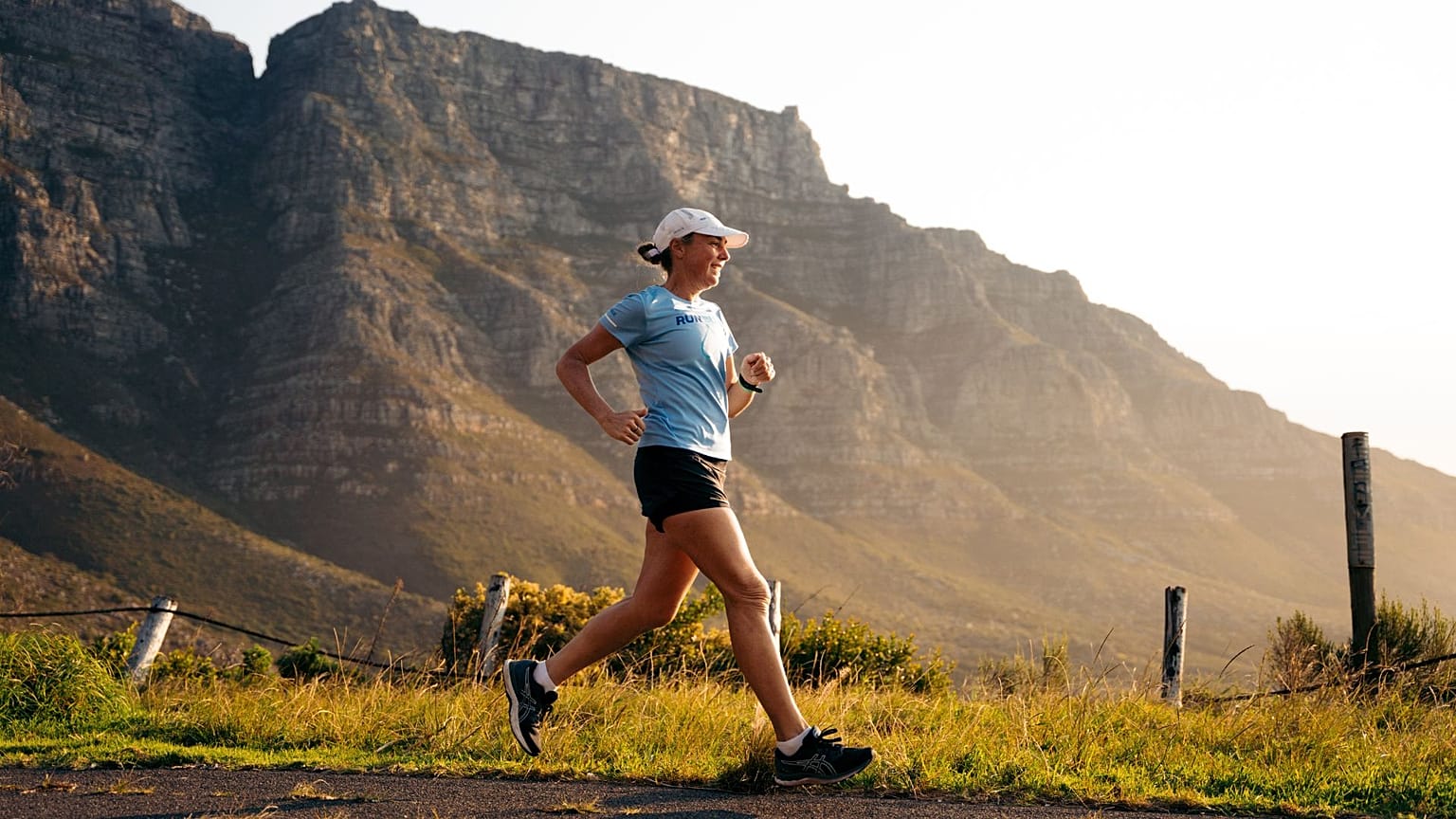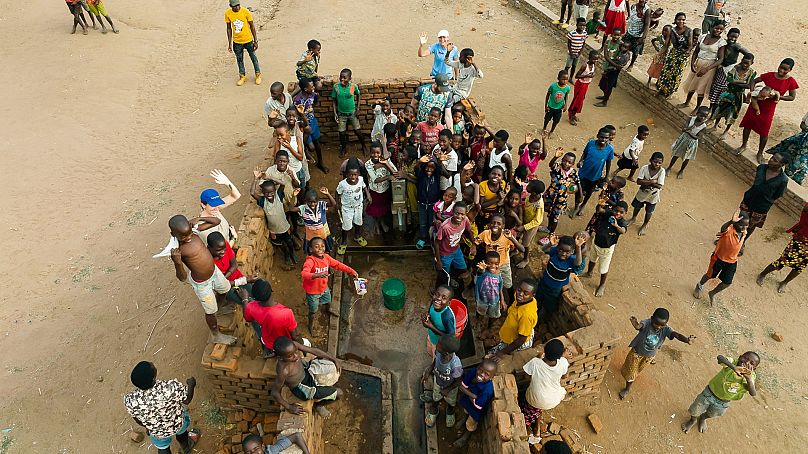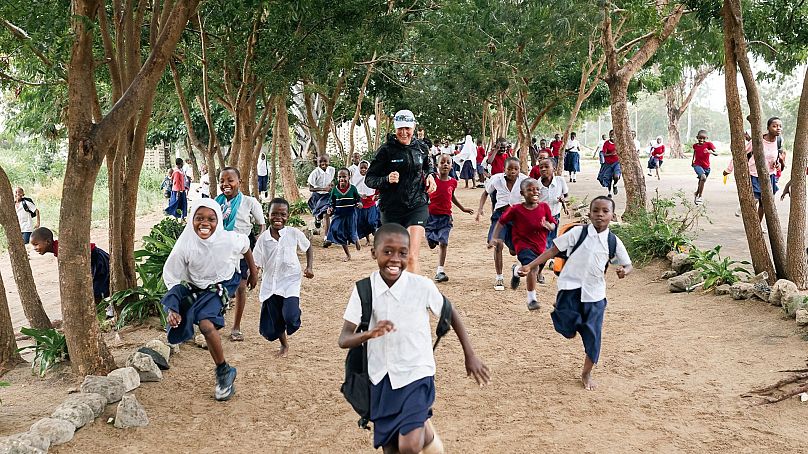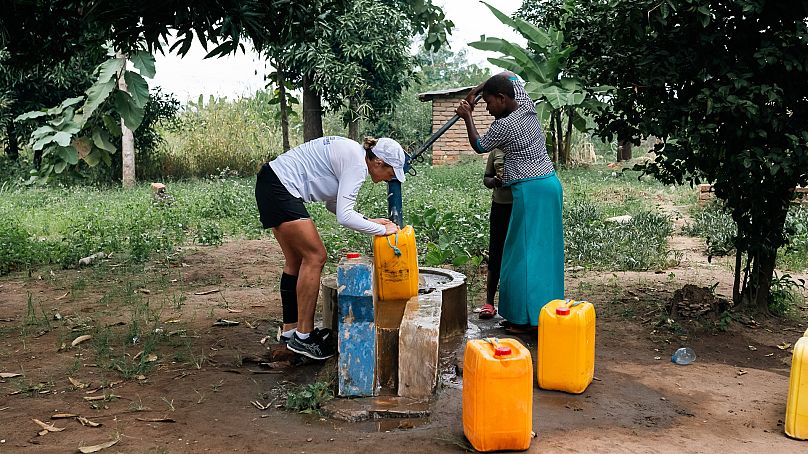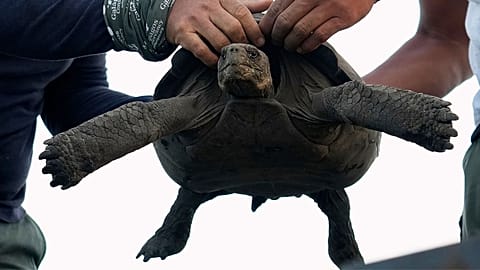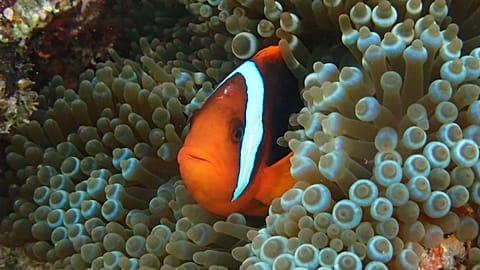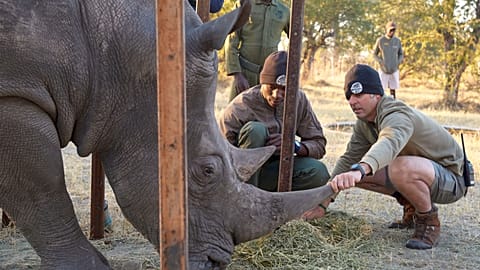‘When I set out to run, I thought I was going to see a problem and what I found was a catastrophe.’
For most people, running a single marathon would be an incredible achievement.
 ADVERTISEMENT
ADVERTISEMENT
 ADVERTISEMENT
ADVERTISEMENT
Australian businesswoman and advocate Mina Guli has just completed 200 in the space of a single year.
On 22 March 2022 - World Water Day - the 52 year old laced up for the first run of her epic #RunBlue challenge, a bid to raise awareness about the global water crisis.
Exactly one year later she completed the last of her 200 marathons, each 42.195 kilometres in length. In total, Guli has run 8,439 kilometres across 32 countries. That is the equivalent of jogging from Morocco to northern Estonia and back again.
“The one thing we all have in common [is that] we all need water to survive,” she told Euronews Green.
“[The water crisis] is not a problem that’s going to go away, this is just going to get worse, every single day.”
So just how bad is the problem - and what can we do to address it?
What is the water crisis?
Guli - a former World Economic Forum Young Global Leader - is CEO of the Thirst Foundation, a non-profit organisation driving action on the water crisis.
She first became interested in the issue while working as a lawyer in Melbourne, but quickly became frustrated at the lack of attention the subject received.
“I got involved in water because I was absolutely horrified that we have such a major global crisis on our doorstep affecting literally billions of people … and we’re not talking about it,” she says.
“Why is water not making front page news? Deforestation does, and yet our wetlands are disappearing three times faster than our forests.”
In many countries, taps, wells and pipes delivering safe water do not exist. According to a new UN report, two billion people worldwide lack access to clean drinking water. Every day, more than 800 children below the age of five die from diarrhoea caused by contaminated water and poor sanitation.
As climate change makes drought more frequent, vulnerable water supplies are under increasing stress. Seventeen countries - home to a quarter of the world’s population - face ‘extremely high’ levels of baseline water stress.
By 2050, around 60 per cent of the world’s inhabitants will likely face water scarcity.
Water holds societies together. And without it, things start to fall apart.
“I think it's easy in places like Paris or here in New York City where we turn on the tap and water comes out, to forget that there is this major systemic global water crisis that exists out there,” Guli warns.
"There are women and girls who walk for hours every day, risking their lives to fetch water."
In other parts of the world, the problem isn’t too little water - it’s too much. According to a WaterAid report, 650,000 pregnant women in flood-affected areas of Pakistan lack access to sanitary reproductive care.
Clean water is essential to human health - but flooding spills wastewater pollution into drinking and bathing supplies causing problems for communities.
Why did Mina Guli run 200 marathons?
Guli hasn’t always been an athlete. In fact, she dodged school sports as a kid, retreating into schoolwork and music.
"I don't really like running, which is really funny because most people that meet me think 'oh you're running 200 marathons, you must love running'," Guli laughs.
But the determined businesswoman decided to use marathons as a way to force people to sit up and take notice of the water crisis.
"I took up running because I wanted to solve the global water crisis and I wanted to go to the front lines of this problem and meet these people and show their stories and lift them up onto the world stage."
In 2016, she ran 40 marathons across seven deserts on seven continents over seven weeks. In 2017, she ran 40 marathons across six rivers in 40 days. In 2018, she attempted 100 marathons in 100 days, but broke her leg on Marathon 62.
Like her earlier feats, the #RunBlue challenge is a way of platforming the voices of the people who are worst affected by the water crisis.
This challenge saw her cross Australian deserts, glaciers in Tajikistan and the Amazon rainforest before finishing outside the UN headquarters in New York.
During her runs, Guli has met women who walk miles to fetch water, Kenyan children who stay home from school to wait for water truck deliveries, and Bedouin herders who have gone “days without access to water.”
“[They] say ‘I fear that my children will become the first water refugees.’ These are real people's lives,” she says.
"It's one thing to see it in a newspaper, read it, to see the facts and figures in black and white on a page.
"But when you go there and you see it for yourself and you feel the raw emotion, the hurt of these people, and you realise this is far bigger and deeper than anything we could have imagined."
What can we do about the water crisis?
Solutions to the water crisis need to be applied systematically, Guli says.
“The vast majority of water used by each of us is actually outside our homes,” she explains.
“10 per cent of water that’s used across the board, on average, is used in domestic household consumption… (but) the vast majority of water is used for the power we use, the food we eat, and the clothes we wear.
“My outfit would have taken more water to make than all the water you drink before you’re 40 years old.”
To encourage this sustainable solution, the #Runblue campaign is targeting businesses.
The team hope to get 200 companies – one for each marathon – to assess their water risk, and reduce their usage through a concrete action plan.
“Water doesn’t come from a tap, water comes from healthy ecosystems, water doesn’t follow a fence line, water goes across boundaries,” she says.
Watch the video above to see Mina's marathons in action.














